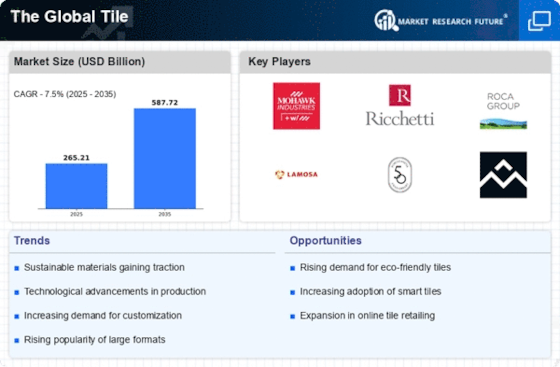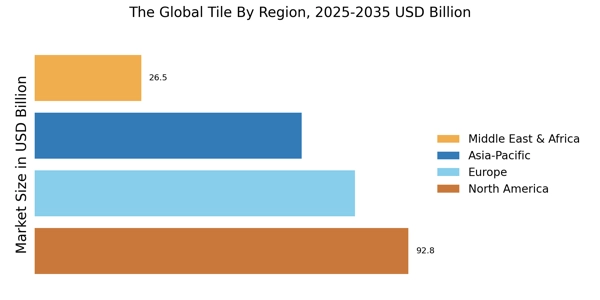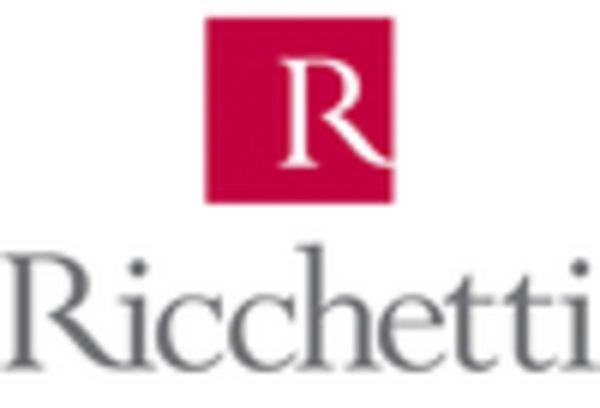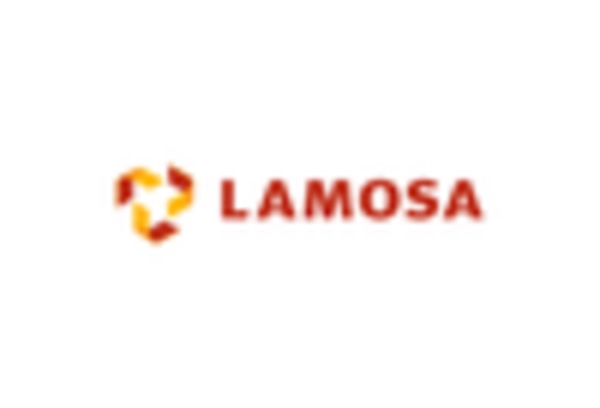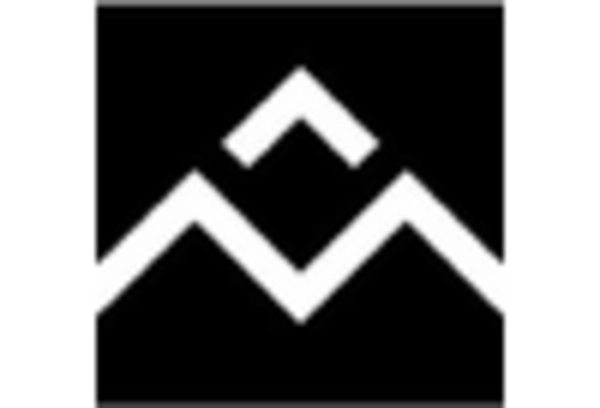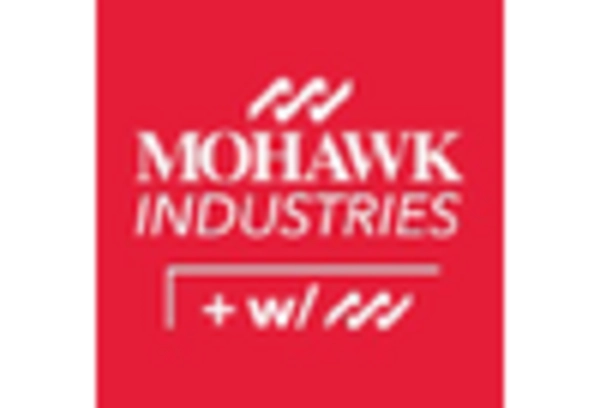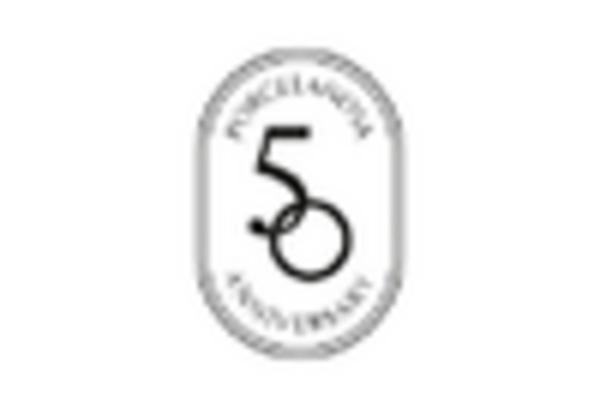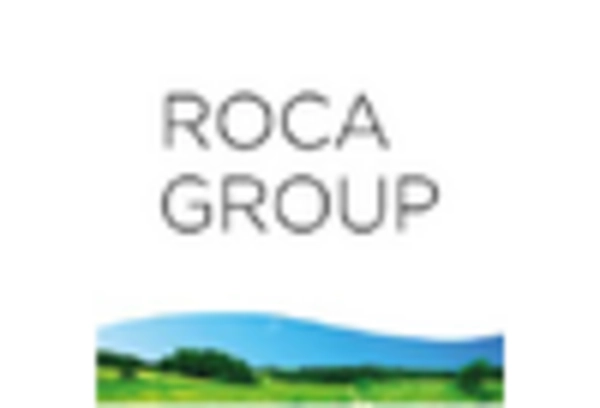Rising Construction Activities
The increasing pace of construction activities across various regions appears to be a primary driver for The Global Tile Industry. As urbanization accelerates, the demand for residential and commercial buildings rises, leading to a heightened need for tiles. In 2025, the construction sector is projected to grow at a rate of approximately 5.5% annually, which could significantly boost tile consumption. Furthermore, government initiatives aimed at infrastructure development are likely to enhance market opportunities. The Global Tile Industry is expected to benefit from this trend, as tiles are essential for flooring, wall coverings, and decorative elements in new constructions. This surge in construction activities not only stimulates demand but also encourages innovation in tile designs and materials, thereby expanding the market landscape.
Increased Focus on Sustainability
An increased focus on sustainability is emerging as a significant driver for makret tile. Consumers are becoming more environmentally conscious, leading to a demand for eco-friendly tiles made from recycled materials or sustainable sources. In 2025, it is anticipated that the market for sustainable tiles will grow substantially, as manufacturers respond to this trend by developing products that minimize environmental impact. This shift towards sustainability not only aligns with efforts to reduce carbon footprints but also appeals to a growing segment of eco-conscious consumers. The Tile Industry is likely to see a rise in the adoption of sustainable practices, which could enhance brand loyalty and attract new customers who prioritize environmental responsibility.
Growing Demand for Aesthetic Appeal
The growing consumer preference for aesthetic appeal in interior and exterior design is a notable driver for The Global Tile Industry. As homeowners and designers increasingly prioritize aesthetics, the demand for decorative tiles has surged. In 2025, the market for decorative tiles is projected to witness a growth rate of around 6%, indicating a robust trend towards visually appealing products. This shift is particularly evident in the residential sector, where tiles are used to create unique and personalized spaces. The Global Tile Industry is responding to this demand by offering a diverse range of colors, patterns, and textures, allowing consumers to express their individuality through design. This focus on aesthetics not only enhances the appeal of spaces but also contributes to the overall growth of the market.
Expansion of Retail and E-commerce Channels
The expansion of retail and e-commerce channels is likely to significantly influence The Global Tile Industry. As consumers increasingly turn to online platforms for their purchasing needs, the accessibility of tiles has improved dramatically. In 2025, it is projected that online sales of tiles will account for a considerable portion of the market, driven by the convenience and variety offered by e-commerce. Retailers are also enhancing their physical stores to provide immersive experiences, showcasing the latest tile designs and technologies. This dual approach not only caters to diverse consumer preferences but also broadens the reach of The Global Tile Industry. The integration of digital tools in retail strategies is expected to facilitate informed purchasing decisions, further propelling market growth.
Technological Advancements in Manufacturing
Technological advancements in tile manufacturing processes are likely to play a crucial role in shaping The Global Tile Industry. Innovations such as digital printing and automated production lines enhance efficiency and reduce costs, making high-quality tiles more accessible. The introduction of eco-friendly materials and sustainable production techniques is also gaining traction, aligning with consumer preferences for environmentally responsible products. In 2025, it is estimated that the market for digitally printed tiles will account for a significant share, reflecting a shift towards customization and unique designs. These advancements not only improve product quality but also expand the range of options available to consumers, thereby driving growth in The Global Tile Industry.


